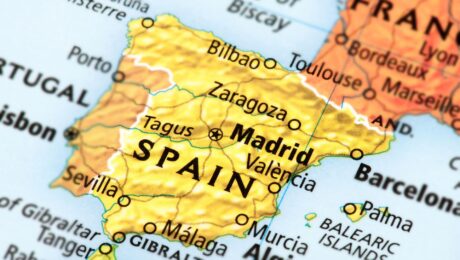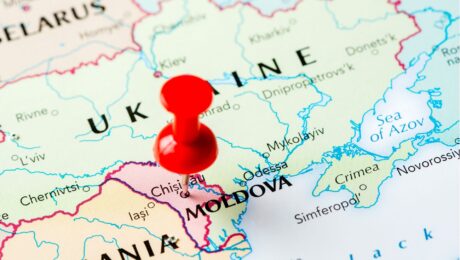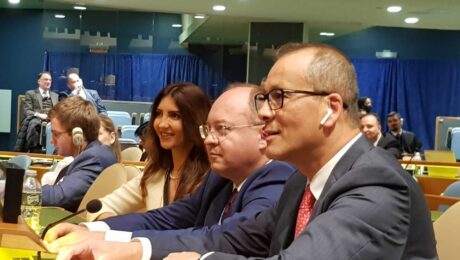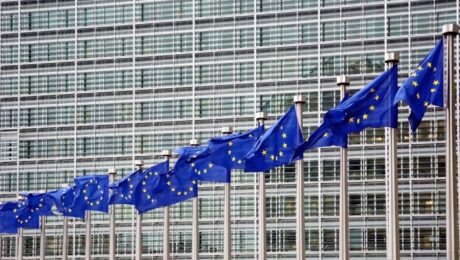Political marketing stunt: Official Complaint for the Missing of Romania’s President
Romania’s President is missing – this is what an Opposition deputy in Romania complained about when he went to the police station to file a missing person case. This could be the best political marketing stunt in years, and the Opposition Party AUR did it. The party is seen as a nationalist, far-right and extremist, isolated in Romania’s political scene for this labelling. However, their actions make all the political marketing experts take notes.
Romania’s President has been missing since December 18, the last day he was publicly seen. Thirty days later, AUR deputy Adrian Axinia went to a police station in Bucharest and filed a formal complaint for the missing person. The case was related to prime-time news by all major TV stations in Romania and all the major news platforms.
Also, the other major Opposition party, the so-called Reformists, USR, posted on Facebook a visual asking for any information about the missing President Johannis.
These complaints are pure political marketing, not else. Romania has four elections in 2024, and the campaigns have just started. However, Johannis is a fake target, as he is in his second presidential term. The real target is the Liberal Political Party – PNL, the now ruling party, and the Socialists. PNL is the party initially supporting Johannis for the presidential elections and his ten-year presidential mandate.
The Opposition exploits citizens’ complaints about their president, among which his notorious missing from office to take long and exotic vacations is only one of them.
- Published in News
Romanian Government Succeeds in Making Dual Citizenship Possible for Romanians in Spain
Due to the Romanian Government’s lobby, Romanians living in Spain will soon have dual citizenship. The Spanish Prime Minister, Pedro Sanchez, will arrive in Romania at the end of January to sign the agreement between the two governments. The two parties have already agreed on the document’s final version.
This success started in 2022 when a joint meeting of the Spanish and Romanian Governments was organized in Spain. At that moment, the Romanian part asked for the Romanians living in Spain to be allowed to have dual citizenship. After that meeting, dual commissions have been established to work on the agenda to fulfil what is now possible.
According to the existing law, the Romanians in Spain who want to get Spanish citizenship must give up their Romanian citizenship. After the two governments sign the agreement, they will get a second citizenship without giving up the Romanian one. Also, they will get jobs, such as in the Spanish Army, administration or police.
So far, this privilege of dual citizenship has been offered only to French and Portuguese nationals, and Romania has become the third country Spain offers this.
More than 1 million Romanians live in Spain, while around 600,000 have residency. Romanians form one of the largest communities of foreigners in Spain.
- Published in News
Romanian Voted as Moldova’s National Bank Governor
Anca Dragu, a Romanian senator, was voted on Friday, December 22, as the new Governor of Moldova’s National Bank. This is quite an accomplishment for the Romanian lobby and a step forward for the long-time goal of getting the two sister countries closer.
Anca Dragu has a solid background for this position. As an economist, she was appointed Minister of Finance in Romania between November 2015 and January 2017 during the rule of the Technocrat Government. Also, she was the first woman in Romania to become Speaker of the Senate. Also, she worked as an economist at the National Bank of Romania and an economic analyst with the European Commission and International Monetary Fund.
The interesting political game, noted in a comprehensive analysis of the context by Valahia News, is that the Moldovan Socialists voted along with PAS – Action and Solidarity, the party supporting Moldova’s President Maia Sandu, to oust the former governor from office and instate Anca Dragu.
Beyond any political meaning, this is also a step from what both governments intend to accomplish in the foreseeable future. Both sister countries were part of Great Romania, a territory that covered the Republic of Moldova, the southern part of Ukraine, and partially the northern part of Bulgaria. The two countries still yearn, more or less, to get back together as one, and there are exciting movements from both sides, such as to name, appoint or vote. officials from the sister country, precisely what happened with Anca Dragu.
In this context, one theory circulating in Romania is to have elected as president the current president of Moldova, Maia Sandu. This would be another way of getting the nation back together. And, if you have a passion for history, this is how the Union of the Romanian provinces in 1600 and the one in 1859 were accomplished – by imposing or voting the same ruler in all or at least two of them. So, it would just be history repeating itself.
Also, another theory is to have the two countries back together after Moldova joins the European Union, a process which might take at least 5-10 years to finish. Also, this possibility requires another step: for this political decision to be backed by all or the majority of the European member states. However, this hasn’t happened so far, so it would be the first time two European Union states would do this.
However, we also have to say that there isn’t 100% backing of the Union between the two sister countries, not even within their borders. Only half the Moldovan population would vote for a Union, while in Romania, the percentage is more significant.
Either way, this process seems to have its agenda, and the Romanian and Moldovan politicians follow it. In the long run, Moldova would be a more experienced country at the moment it will join the EU. Moldova could learn much from Romania’s expertise in the field and would be able to play its cards better when the moment comes. Also, a larger country, with 23 million inhabitants, would do better than one with 3 million in a European Union where the economic and voting power matters the most.
- Published in News
Romania Wins over Russia and Imposes Judge to UN Court of Justice
The former Foreign Minister Bogdan Aurescu was elected on Thursday, November 9, as a judge of the UN International Court of Justice. Aurescu was nominated for this candidacy by Romania and nine other countries – the Netherlands, Portugal, Sweden, Latvia, Italy, Poland, Peru, Estonia and Bulgaria. He competed for the Eastern Europe position with Russian judge Kirill Gevorgian, supported by Russia, China and Belarus.
Bogdan Aurescu obtained 117 votes in the General Assembly, while Gevorgian only 77 votes. This is a historic defeat for Russia, which hoped to have Gevorgian re-elected. It is the first time in the history of the UN International Court of Justice that the Russian representative is not re-elected.
This is seen as a diplomatic win for Romania and all the European Union members who oppose Russia’s aggression.
In the Security Council, Aurescu obtained nine votes.
All the elected judges on Thursday, November 9, are:
- Bogdan Aurescu Romania
- Hilary Charlesworth Australia
- Sarah Cleveland
- Juan Manuel Gómez Robledo Mexico
- Dire Tladi South Africa
Bogdan-Lucian Aurescu was Romania’s Minister of Foreign Affairs between 4 November 2019 and 15 June 2023 and 24 November 2014 and 17 November 2015. A career diplomat (since 1996), he has the diplomatic rank of Ambassador (since 2014). Between 6 May 2016 and 4 November 2019, he was the Presidential Advisor for Foreign Policy of the President of Romania. On 15 June 2023, he was again appointed as Presidential Advisor for Foreign Policy of the President of Romania.
- Published in News
Romanians’ Trust in EU Collapses
According to Valahia News, the Romanians’ trust in the European Union collapses. This is what the latest Eurobarometer says about the trust the Romanian people lost, especially during the last two years in the EU and the European institutions.
In particular, trust decreased by roughly 10% during the past two years. Only 46% of Romanians see participation in the EU favorably, down from 55% in 2020. Romania has significantly slipped below the EU average in this area, which is currently 62% and is expected to rise from 59% in 2020.
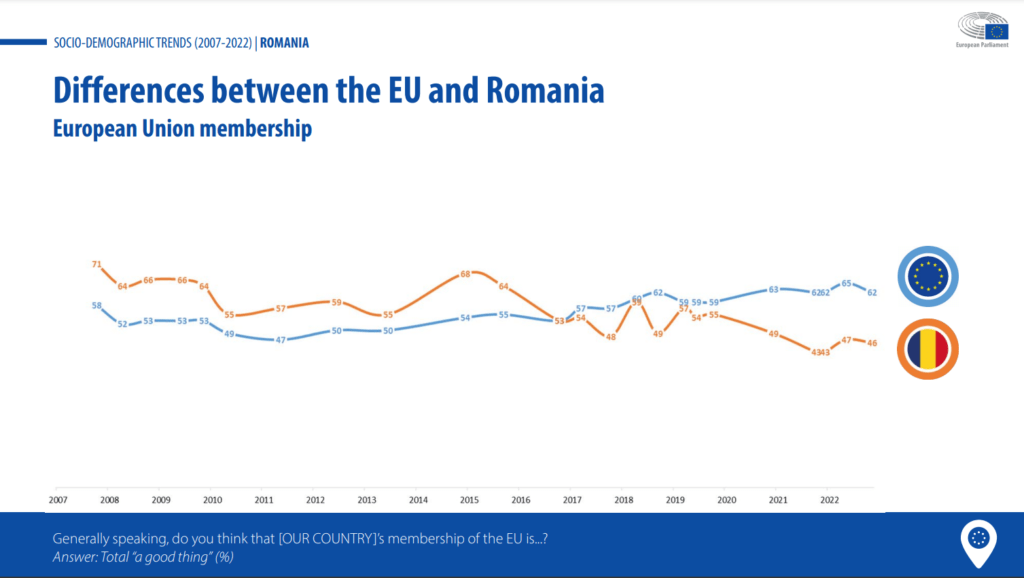
Not only that but the proportion of individuals who still believe that being a part of the EU benefits them fell from 72% in 2020—which was and remains the average for Europe—to 62% presently. In just two years, there has been a 6% decline.
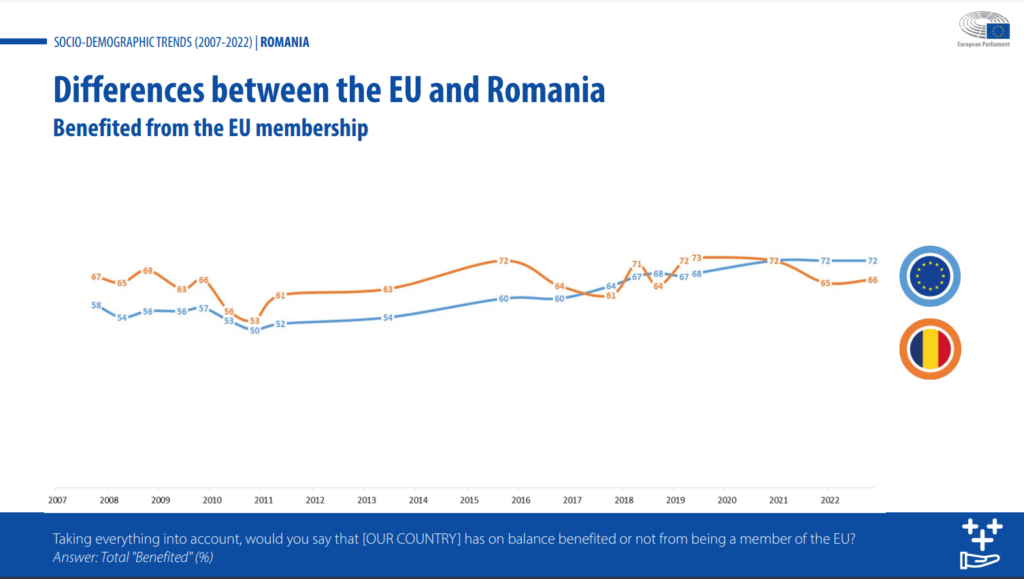
39% of Romanians who were asked why they valued their country’s participation in the EU said it was for the employment prospects. This is due to the fact that millions of Romanians labor overseas. On the other side, the study reveals that Romania falls well short of the EU average in terms of valuing the EU’s economic contribution to the development of the nation or its contribution to restoring peace and security in Romania. Given the EU’s failure to solidify the peace in the region, it is understandable why they think this way. The Romanian people don’t notice much of an impact from the EU, just from NATO, as the so-called „special operation” is taking place close by.
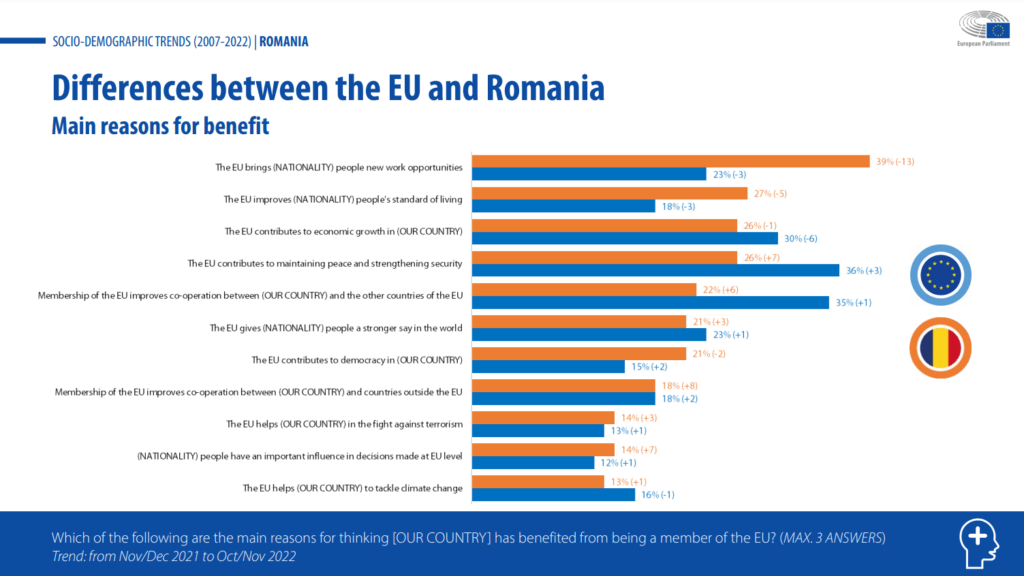
How did Romanians lose trust in their leaders and the EU and why did this happen?
Although the pandemic may have been a major factor in this, we must admit that Romanian officials may have had a part to play. The lawmakers merely seemed to the Romanians as a group of individuals who faithfully carried out EU directives. Romania implemented one of the most autocratic regimes during the pandemic to impose quarantine regulations on its inhabitants. The government once sent personnel armed with heavy machine guns and military trucks onto the streets to deliver a straightforward message: we set the rules now!
Romania also demonstrated unrestricted devotion to Brussels by spending billions and purchasing tens of millions of vaccination shots, just to dispose them now that they had expired. These may be the main reasons why the country is losing trust in the EU.
Also, the recent developments at the European level made more Romanians reject European values. While keeping Romania out of Schengen, European politicians should consider that the country could retaliate. Boycotts against Western companies are underway in Romania. Instead of understanding the people and trying and fulfill their rightful demands, politicians in Bruxelles blame the Russian rhetoric whenever they spot opposition to the European institutions.
Now, the Romanian Government and the country’s elites reap what they sow: the lack of trust of Romanians in the European institutions is only the consequence of how the politicians in Bruxelles and Bucharest treated the population. Suppose anyone in Bruxelles would like to change the current trend and the widening gap between the Romanians and the EU. In that case, they should try and understand that it’s not Russia to be blamed but their own decisions and behaviour.
- Published in News
Romanian MP Pledges to Obstruct Austrian and Dutch Interests if Romania is Not Admitted to Schengen
Pavel Popescu, a member of the Romanian parliament, made a strong remark on Facebook over the weekend addressing the opposition Romania faces while trying to join the Schengen region from Holland and Austria.
Romania made enough compromises to be admitted to the much-desired Schengen region, but when foreign interests are at risk, hurdles and opposition are constantly there, making the compromises insufficient. When it came to debating the Schengen entrance issue, the Romanian MP had had enough and said he had no intention of adhering to instructions for the proper use of diplomatic language.
“I refuse to consider a failure of Romania’s accession to the Schengen area by the end of the year. Or the scenario of postponement until another suitable moment. Two countries are currently opposed: the Netherlands and Austria, with the mention that the Prime Minister of the Netherlands is very agitated these days with phones to widen further the club of the two countries full of issues, who would go into instant withdrawal without the daily overdoses of Russian gas and Colombian cocaine.”
Pavel Popescu, MP of PNL party and head of the Defense Committee
Popescu promised to follow through as he did with China in 2019 if the disagreement resulted in Romania still being denied entry to the Schengen region by the end of the year. Popescu indicated that he would not comment on what Romania did in the past to get into this position but that the final two years of his term would be devoted to passing laws and taking political action that would specifically target Austrian and Dutch businesses and interests (which are essentially Russian) present in Romania.
The sole distinction is that Popescu is not acting alone in this situation. Many of his generation’s legislative colleagues are willing to join him, hence his confidence in this position.
”I know the two countries’ ambassadors will send this post home to headquarters, and they do well. Because it’s not a political threat, but just a firm promise that some of us, who didn’t put our hands in the “honey jar” with these companies because we love our country, are a bit fed up. P.S: I’m not accepting diplomacy tips until December 8th. I am voted politically, I am not a diplomat”.
Pavel Popescu
- Published in News


